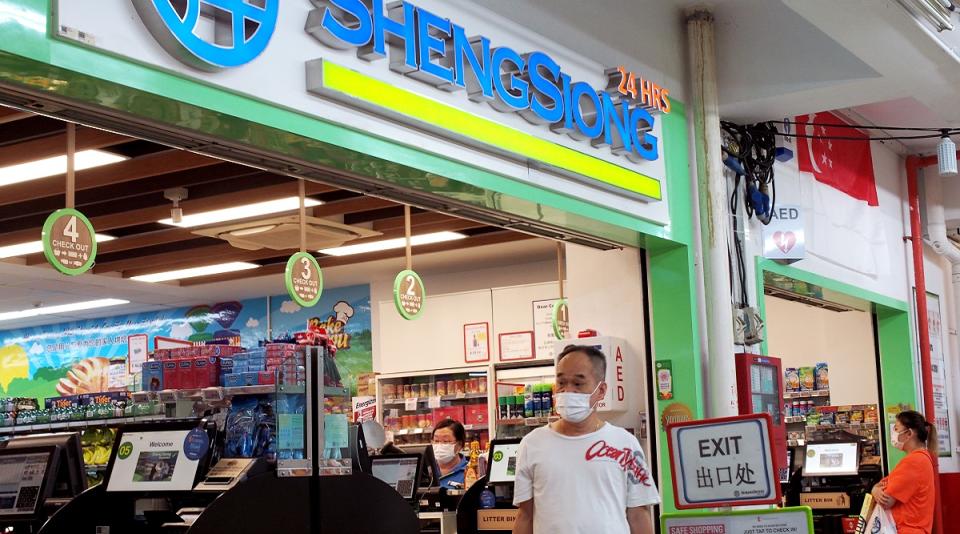'Growth opportunities abound' for supermarkets in Singapore: DBS

“We estimate that these upcoming estates can accommodate up to 70 new outlets,” says DBS Group Research analyst Andy Sim.
There is room for supermarkets in Singapore to increase their penetration with “growth opportunities abound”, say DBS Group Research analyst Andy Sim and the Singapore research team.
At the existing estates, the supermarket count relative to the population in Singapore is lower compared to the other Asian cities, says Sim, who sees a “store count upside” in existing and upcoming estates.
“To reach Hong Kong’s level of penetration, industry players have room to set up 125 new stores. In addition, based on Singapore’s housing development plan in the next two decades, there are underdeveloped land areas designated for new major residential estates,” he writes in his Dec 14 report.
“We estimate that these upcoming estates can accommodate up to 70 new outlets,” he adds.
Furthermore, the industry players in Singapore are actively embarking on margin expansion strategies. This is mainly done through expanding their premium offerings and house brands.
“For the former, players focus on increasing the share of fresh produce vis-à-vis non-perishable grocery items. For the latter, house brands are priced attractively to offer consumers with value-for-money options while at the same time affording better margins for grocery players,” Sim points out.
Supermarket counters also act as an inflation and recession hedge, with the prevailing high inflation prompting consumers to lower dining out and increase in-house consumption.
“With the expectation of slower growth and higher inflation for 2023, we believe grocery players stand to ride on this coattail. In addition, grocery demand has remained resilient during past downturns as consumers down trade from dining out to in-house consumption,” says Sim.
Sim has recommended “buy” on the two supermarket stocks in Singapore, Sheng Siong Group (SSG) and DFI Retail Group Holdings.
Sheng Siong Group a ‘defensive hedge’
Sim, in his report on Sheng Siong Group dated Dec 13, has upped his target price to $1.92 from $1.76 previously.
The new target price is based on a P/E multiple of 21.4x, which represents the stock’s -1 standard deviation (s.d.) pre-Covid historical P/E ratio.
To Sim, SSG has several pluses including riding on the sustained inflation tailwind for in-home consumption, as the elevated inflation environment is positive for groceries sales.
SSG also enjoys resilient demand from groceries and is an ideal recession hedge. “We believe, should the worst-case recession scenario pan out, there will be minimal impact to SSG’s earnings,” says Sim.
“We believe shifting consumer preference towards value will drive SSG’s house brand sales growth and improve margins. Year-to-date (ytd), the group has achieved record-high 29.4% gross margins,” he adds. “We expect margins to remain high with increased sales contribution from house brands and fresh offerings.”
Sim, however, admits that his margins estimates are above the consensus as we believe SSG can maintain its current high margins with its house brands and fresh offerings. That said, higher input costs such as energy expenses and labour costs, and excessive promotions by competitors, could result in lower margins.
China’s imminent border reopening positive for DFI
In a separate report, Sim has also raised his target price to US$3.90 ($5.30) from US$3.07 as he sees the Chinese government’s recent moves to relax its Covid-19 measures as benefitting Hong Kong.
“We have a non-consensus ‘buy’ call and have increased our target price to US$3.90, pegged to a 17.4x P/E ratio, representing -1.5 s.d. from its 10-year mean, on a blended FY2023/FY2024 earnings to account for China’s reopening tailwind,” Sim writes.
“DFI’s health and beauty segment has remained subdued since Covid due to loss of Chinese tourists. We expect Chinese tourist influx to rebound sharply in 2HFY2023, which should materially improve health and beauty earnings,” he adds.
The recent selloff in stocks with “significant” North Asian exposure such as DFI due to the negative outlook of the region’s economy, is “overdone”.
As a result, valuations are attractive. “We project earnings to rebound strongly in FY2023 and FY2024 after an expected low point in FY2022,” says Sim.
That said, Sim acknowledges that he may be “too early” in his positive estimates with FY2022 earnings still looking dismal. “But looking at its low share price, we believe the odds are on our side. [The] return of Covid restrictions and higher-than-expected digitalisation investment costs dragging out longer are risks.”
As at 2.16pm, shares in Sheng Siong Group and DFI are trading at $1.65 and US$2.89 respectively.
See Also:
Click here to stay updated with the Latest Business & Investment News in Singapore
RHB ups UOB's TP to $34.90; earnings expected to grow by 'healthy' 18% in FY2023
Broker's Digest: iFast Corporation, Sea, LHN, Kimly, Del Monte Pacific
Economists see Powell’s message as 'hawkish'; 50 bps increase 'consistent' with forecasts
Get in-depth insights from our expert contributors, and dive into financial and economic trends

 Yahoo Finance
Yahoo Finance 